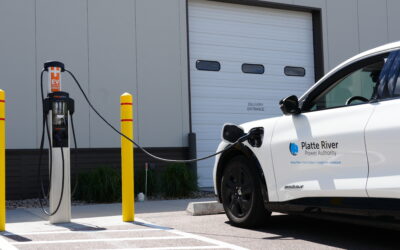The group will work to provide organizations with the information and tools they need to consider moving to hydrogen powered fleets, such as the availability of fuel cell trucks and buses and the development status for hydrogen fuel stations. It will connect the companies and municipalities with vehicle providers as well as with funding support to encourage the adoption of Fuel Cell Electric Vehicles (FCEVs). The Working Group will be a comprehensive source for the latest information about FCEV technology, vehicles, fueling and safety for fleet managers, transit agencies, vehicle suppliers, investors and fuel station developers and more.
“We are excited about offering this opportunity to our fleet stakeholders in Colorado,” said Bonnie Trowbridge, Executive Director of the Denver Metro Clean Cities Coalition. “There are current applications like forklifts, transit buses, and cars that the working group will examine with an eye toward increasing adoption here in Colorado. Additionally there are many emerging applications that we want to explore with the intention of leading the way here in Colorado.”
“The Hydrogen Fleets Working Group took flight to resolve the chicken-and-egg stalemate of establishing both fuel cell electric vehicles and hydrogen fueling in Colorado. Commitment was expressed between both public and private stakeholders to work together to make Colorado the next epicenter for green, hydrogen-powered electric transportation,” said Brian DeBruine, Director of Operations at the Colorado Hydrogen Network.
The Denver Clean Cities Coalition and the Colorado Hydrogen Network hold the common goal of advancing clean transportation and sustainable mobility. Powered by hydrogen derived from renewable electricity, FCEVs are appropriate for fleets due to their fast refueling, range, largely independent of cold temperatures, towing capability, and freight load. These attributes along with the State of Colorado’s increased commitment to decarbonizing transportation align to necessitate the formation of this group to provide needed resources to make overarching climate goals a reality.




